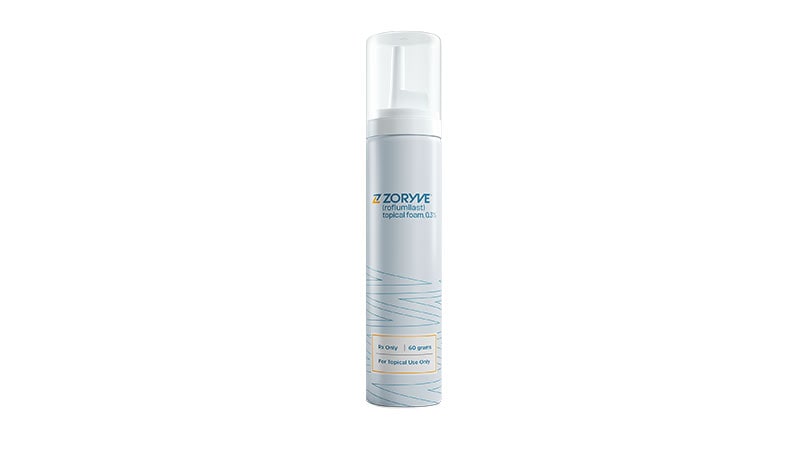EMA Approves Ocular Formulation of Bevacizumab
This month, the European Medicines Agency (EMA) gave marketing authorization to bevacizumab-vikg (Lytenava, Outlook Therapeutics) for the treatment of neovascular (wet) age-related macular degeneration (AMD). The product was developed as a specific ocular formulation to overcome the sometimes controversial off-label use of existing bevacizumab products for wet AMD.
The agency's decision followed a positive opinion from the Committee for Medicinal Products for Human Use. The drug, a humanized monoclonal antibody given by intravitreal injection, works by binding to vascular endothelial growth factor (VEGF), preventing VEGF activity, and preserving vision.
Significantly Improved Acuity Among Trial Patients
Results of three clinical trials, NORSE ONE, NORSE TWO, and NORSE THREE, showed that the formulation yielded "highly statistically significant and clinically meaningful primary efficacy data." In NORSE TWO, which enrolled 228 participants at 39 clinical trial sites across the United States, 41.7% of participants gained at least 15 letters of best corrected visual acuity (BCVA) after 12 months treatment with the ocular formulation of bevacizumab.
In comparison, the currently licensed ranibizumab (Lucentis, Novartis) achieved this primary endpoint for 23% of patients. A mean change in BCVA was observed with 5.8 letters on ranibizumab vs 11.2 letters on bevacizumab. Reporting the results in 2021, Firas Rahhal, MD, associate clinical professor of ophthalmology at UCLA School of Medicine and a NORSE TWO investigator, said that the clinically relevant results, most notably the 41% of patients who gained 3 lines of vision, were "very exciting for the retina community."
The NORSE investigators reported that the overall safety profile of the drug "was consistent with that shown in previous studies of bevacizumab in ophthalmic use," with no unanticipated safety signals. NORSE THREE, a supplemental safety study with 197 patients in the United States, found no reports of intraocular inflammation after treatment with bevacizumab. Over all three trials, only one participant reported intraocular inflammation (iritis), which the trial team said gave it a 0.05% incidence when normalized to the number of injections given in the studies.
The most common ocular adverse event was intravitreal injection–related conjunctival hemorrhage that resolved without complications, followed by eye pain, vitreous floaters, and increased intraocular pressure. The overall frequency of treatment-emergent ocular adverse events was similar in both groups at 45.1% vs 41.7%, respectively.
Controversial Off-Label Use
AMD is the most common cause of visual impairment and blindness in Europe, with a pooled annual incidence of late-stage disease of 1.4 per 1000 individuals, and numbers across Europe forecast to increase from 400,000 per year today to 700,000 per year by 2050. The number of people across the EU with any stage of AMD is predicted to rise from 67 million to 77 million in the same timeframe.
There are currently multiple approved anti-VEGF drugs, including ranibizumab, but until now, there has been no approved ocular formulation of bevacizumab; however, the drug has been widely used off-label in its Avastin (Genentech) formulation because it is significantly cheaper than are the alternatives. In a 2018 court case in the United Kingdom, Bayer and Novartis (manufacturers of other anti-VEGF drugs) challenged the lawfulness of an EU rules policy that allows the British National Health Service to prescribe bevacizumab for wet AMD because it wasn't specifically licensed for this ophthalmic use.
Figures quoted in court showed that Genentech's bevacizumab cost around £28 per injection compared with £551 for Novartis's ranibizumab and £816 for Bayer's aflibercept (Eylea). In the USA, bevacizumab costs between $50 and $150 per injection compared with around $2000 per dose for approved formulations such as ranibizumab and aflibercept. Genentech's bevacizumab formulation, which has an expired patent, is the most widely used biologic for AMD in the United States despite not being approved for ophthalmic use.
Outlook Therapeutics said that the EMA ruling on its bevacizumab-vikg formulation would be the drug's first approval as a specific ophthalmic formulation for the treatment of retinal diseases. The company plans further NORSE trials to assess the drug in diabetic macular edema and branch retinal vein occlusion.


 Admin_Adham
Admin_Adham


